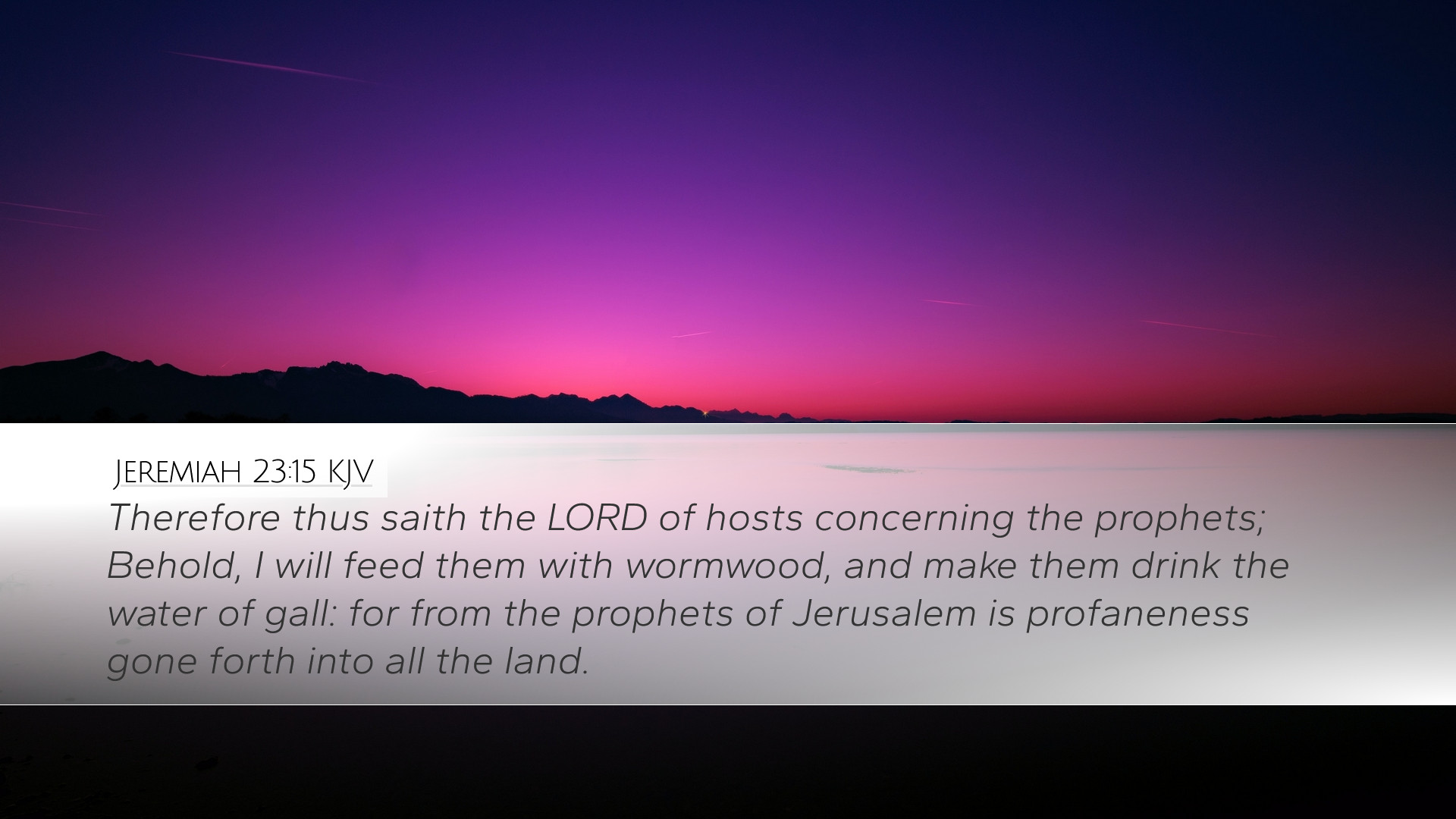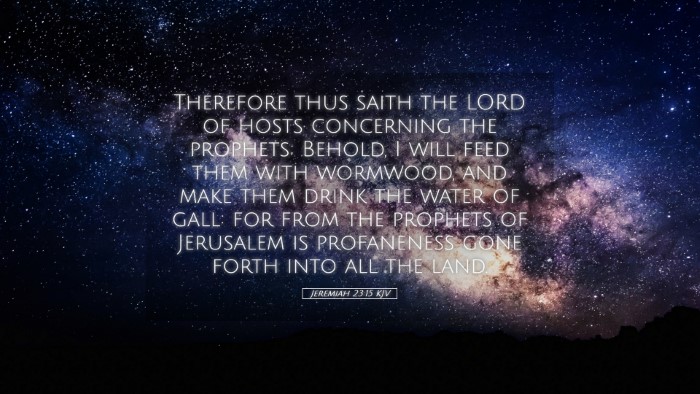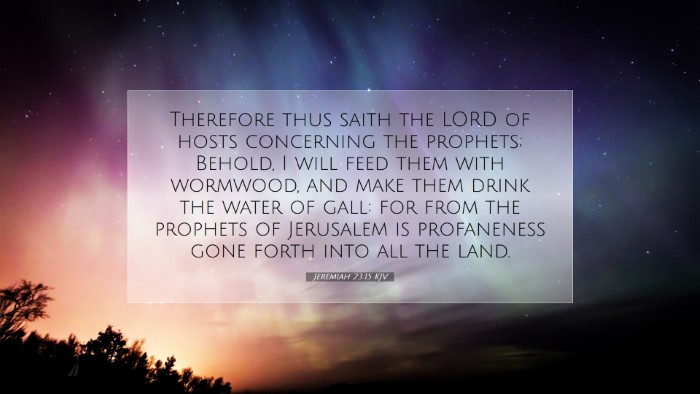Commentary on Jeremiah 23:15
Text of the Verse: "Therefore thus saith the LORD of hosts concerning the prophets; Behold, I will feed them with wormwood, and make them drink the water of gall: for from the prophets of Jerusalem is profaneness gone forth into all the land."
Introduction
This verse represents a significant pronouncement from God concerning the prophets of Jerusalem, who have deviated from their divine calling. The context of Jeremiah 23 is crucial; it deals with the false prophets who mislead the people of God and exploit their position. The consequences of their actions as declared by God are stark, illustrating the seriousness of leading others into spiritual error.
Historical Context
The prophet Jeremiah was active during a tumultuous period in Israel's history when the nation faced imminent Babylonian invasion. The role of prophets was pivotal; they were meant to guide, warn, and correct the people based on divine revelation. However, false prophets like those referred to in this verse communicated peace and prosperity, contrary to God's actual message.
Understanding 'Wormwood' and 'Gall'
Both 'wormwood' and 'gall' are metaphorical terms representing bitterness and poison. In the Scripture, wormwood often symbolizes bitterness resulting from God's judgment (see Deuteronomy 29:18). The use of these terms in Jeremiah 23:15 indicates that the prophets will be punished with the bitter consequences of their misleading teachings. It signifies a profound disillusionment for both the prophets and the people, leading to spiritual and moral decay.
Theological Implications
- Divine Justice: God's pronouncement actions demonstrate a key theological principle—divine justice. Those who lead others astray face serious consequences. This theme is prevalent throughout Scripture, where God cautions against causing His people to err.
- Corruption of Leadership: Jeremiah's condemnation of the prophets highlights the dangers of corrupt leadership. When leaders fail to uphold righteous teaching, the entire community suffers. This serves as a timeless warning for church leaders and pastors.
- Spiritual Consequences: The spiritual implications of false prophecy are grave. The prophets are not just individuals, but their error influences the spiritual state of the nation. Hence, the repercussions extend to the entire community.
Insights from Matthew Henry
Henry asserts that the judgments pronounced upon the prophets reveal God's concern for the truthfulness of His Word. He points out that their teachings had brought chaos and corruption to the spiritual landscape of Jerusalem. In bringing divine judgment in the form of 'wormwood' and 'gall', God emphasizes the seriousness of their guilt. The notion of feeding them with bitterness illustrates that their reward for deceit will be as bitter as the poison they spread.
Insights from Albert Barnes
Barnes elaborates on the metaphor of wormwood, describing it as a plant whose bitterness symbolizes the plagues that fall upon the people due to the leadership’s failings. He urges readers to recognize that God’s displeasure with such false teachers leads to ramifications not only for the leaders themselves but also for the wider community they influence. Additionally, he emphasizes the necessity of discernment among the people to avoid the pitfalls set by these false prophets.
Insights from Adam Clarke
Clarke further explicates the phrase "make them drink the water of gall," interpreting it as a divine sentence of misfortune and distress placed upon these false prophets. He draws attention to the moral principle that the influence of error leads to suffering, both for the teachers and their followers. Clarke encourages believers to pursue truth and sound teaching, as the ramifications of neglecting this responsibility extend beyond individual well-being to the health of the entire faith community.
Conclusion
Jeremiah 23:15 serves as a poignant reminder of the profound responsibility carried by those tasked with teaching God’s Word. The dire consequences faced by the false prophets underscore a critical truth: leading others astray is not a trivial matter in the eyes of God. For pastors, theologians, and students of Scripture, this passage calls for vigilance, sincerity, and fidelity to the teachings of the Word. As we navigate the complex landscape of ministry today, may we heed the lessons from Jeremiah and strive to be faithful messengers of God's truth.


